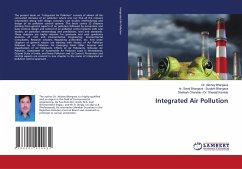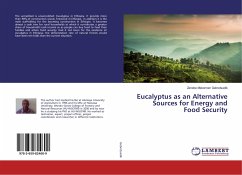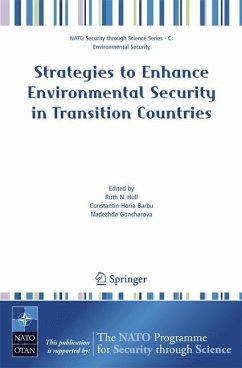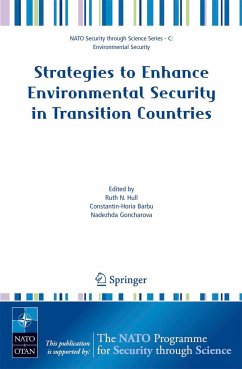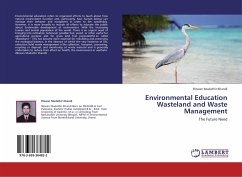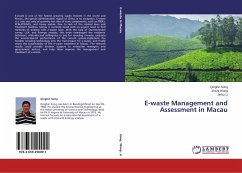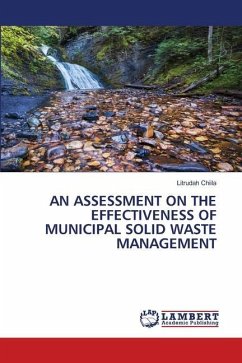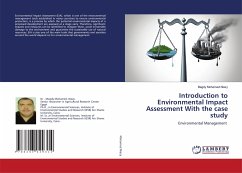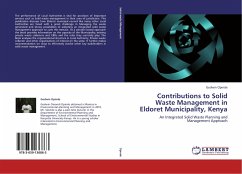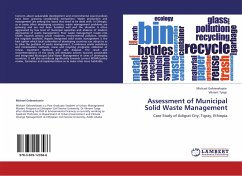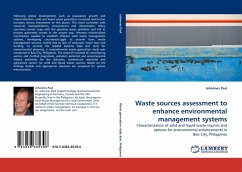
Waste sources assessment to enhance environmental management systems
Characterization of solid and liquid waste sources and options for environmental enhancements in Bais City, Philippines
Versandkostenfrei!
Versandfertig in 6-10 Tagen
52,99 €
inkl. MwSt.

PAYBACK Punkte
26 °P sammeln!
Following global developments such as population growth and industrialization, solid and liquid waste generation increased and further increases almost everywhere on the planet. This trend correlates with resources overexploitation, consumerism and urbanization. Many countries cannot cope with the growing waste problems and fail to process generated wastes in the proper way. Whereas industrialized countriesare capable to establish efficient solid waste management systems, developing countriesstruggle to provide basic waste management services, mainly due to lack of resources, know how and fund...
Following global developments such as population growth and industrialization, solid and liquid waste generation increased and further increases almost everywhere on the planet. This trend correlates with resources overexploitation, consumerism and urbanization. Many countries cannot cope with the growing waste problems and fail to process generated wastes in the proper way. Whereas industrialized countriesare capable to establish efficient solid waste management systems, developing countriesstruggle to provide basic waste management services, mainly due to lack of resources, know how and funding. To provide the needed baseline data and tools for environmental planning, a comprehensive waste generation study was conducted in Bais City, Philippines. The research included all contributing sectors and clarified magnitude, pollution potential and environmental impact potentials for the domestic, commercial, industrial and agriculture sectors for solid and liquid waste sources. Based on the findings doable and appropriate solutions are proposed for system enhancement.



